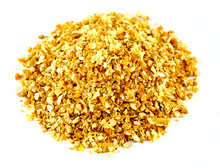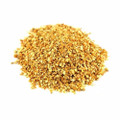 Loading... Please wait...
Loading... Please wait...- Home
- Bulk Herbs
- Herbs (J-L)
- Lemon Peel
- Home
- Herbs - Certified Organic
- J-L
- Lemon Peel
Product Description
Lemon Peel
Certified Organic - USA
Also Known As –Citrus limonum
Overview - The Lemon is part of the group of citrus fruits that include oranges, limes and grapefruit. These yellow fruit are tart and juicy, and are often enjoyed as part of desserts and beverages. They have been used throughout history. It is thought that lemonade originated in medieval Egypt. In the 1700s, the juice was added to the diet of sailors to ward off scurvy. The fruit contains a fair amount of calcium and other vitamins and minerals and so are beneficial to bones, teeth and is one of our basic nutritional needs.
Medicinal Uses – Internally, when you drink juice and water exclusively, it helps cleanse the system. Drinking straight juice on an empty stomach in the morning can help with water retention. It can aid fever, chills and headache. It is suggested that it may also help with asthma, endurance and fatigue. Drink the herbal juice and honey for fresh breath. It is a well-known cure for scurvy. It also will clean the tartar from the teeth. The herbal remedy can help with blood pressure, anxiety and sore throat. It is an appetite stimulant and it heals bleeding gums and canker sores. Historically, scarlet fever has been aided by its use. Externally, the juice of the lemon can be used topically to heal athlete's foot, ringworm and tinnea. Pulped fruit poultices can be applied to boils, skin eruptions and abscesses. The essential oil is used in aromatherapy.
Other Uses – The juice can lighten the hair and raw fruit can be used as a natural deodorant. The juice has also been used to lighten skin and freckles. If toothbrushes are kept in a solution of lemon juice and water, the brush will remain fresh and clean. It is used in the culinary world not only to make all things containing the fruit, but the ground peel adds richness to fine chocolate, salads, soups and more. Marmalade is also popular in Europe, as is lemon curd. Oil is used as a wood conditioner and furniture polish. A compound made from the herb has been used to kill and repel insects.
Herbs to Combine/Supplement - Lemons studded with cloves can be hung in the closet. It will dry slowly, scenting the air deliciously and keeping moths away.
Parts Used - Teas or aqueous extracts for flavor. Many people eat lemon peel or add it to teas in order to enhance flavor and impart its delicious, citrusy aroma.
Precautions - There are no known contraindications to using this herb, nor are there any known drug interactions. If you use it topically, be careful about spending time in the sun because it may cause some degree of photosensitivity.
Suggestion - For fever and chills: add the juice to a cup of hot water and add a little honey. Drink every two hours as needed.
- For headache: Add a few teaspoons of hot tea to the juice. This helps all sorts of headaches, even hangovers.
- For coughs and colds: roast a lemon until it cracks open. Serve with brown sugar and pineapple. This is safe for all ages.
Disclaimer - The information presented herein by Mountain Maus’ Remedies is intended for educational purposes only. These statements have not been evaluated by the FDA and are not intended to diagnose, cure, treat or prevent disease. Individual results may vary, and before using any supplements, it is always advisable to consult with your own health care provider.
















